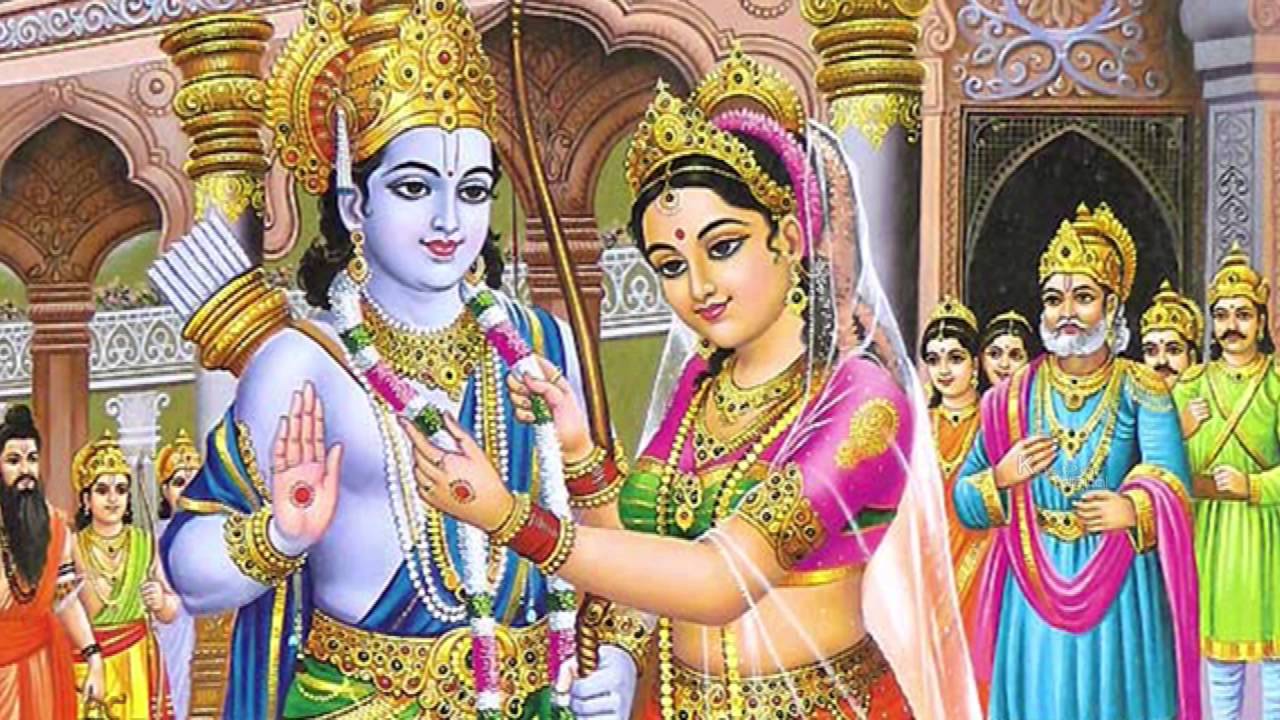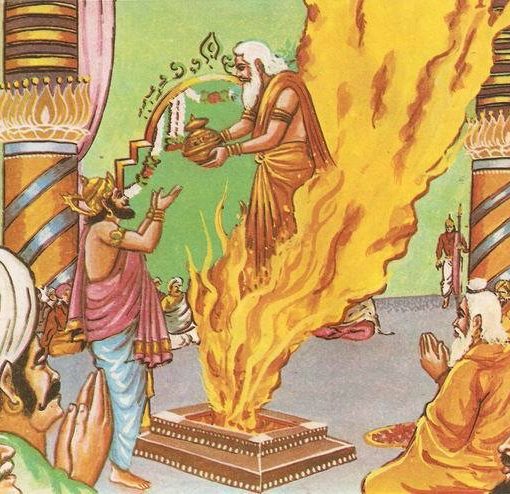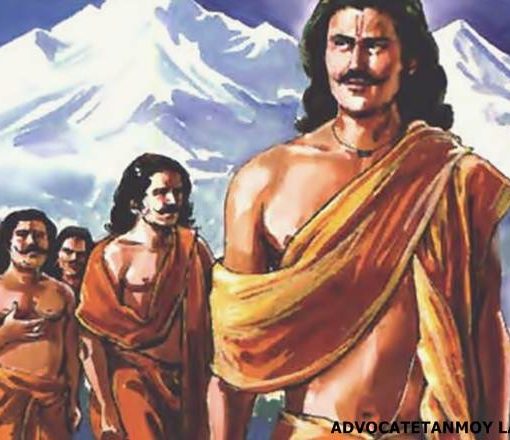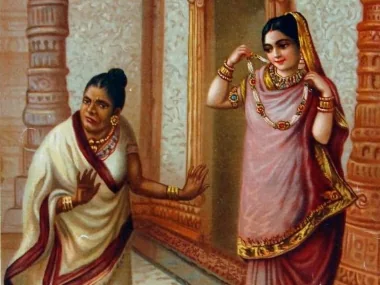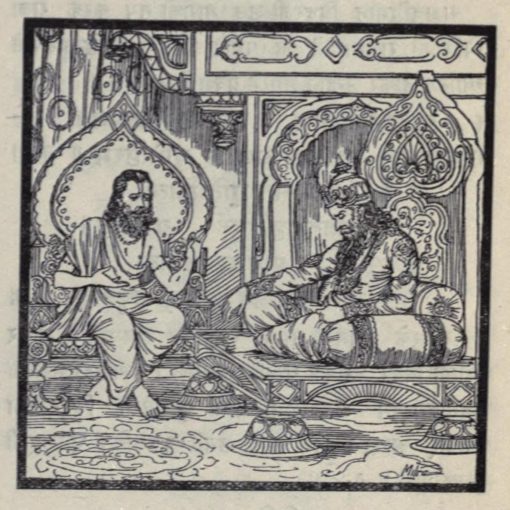

Sītā came down from the balcony with a garland of golden flowers in Her hands and stood by Her father. She was resplendent in a silk sari of deep maroon, a necklace of pearls shining on Her breast. As She walked Her golden anklets tinkled and her diamond earrings swung to and fro. Smiling gently, she shyly lifted her eyes a little and looked at Rāma, who caught Her glance. Both felt Their hearts moved by love. In that moment Their union was forged. Sītā’s father signaled and She went before Rāma. She placed the garland around His neck, indicating Her acceptance of Him as Her husband. She blushed slightly and kept Her eyes down. Walking slowly, She went back to her father, who felt as if his heart might burst with happiness.
The king wanted to perform the marriage ceremony as soon as possible. He asked for Viśvāmitra’s permission, and when the sage agreed, the king arranged for swift messengers to go to Ayodhya to inform Daśaratha.
Marriage Planning
“Once the celestial seer Nārada informed me that Sītā is Viṣṇu’s eternal consort and that he would one day become Her husband in this world. I thus devised a test which would only be possible for Viṣṇu to pass. Your son has now passed that difficult test and must therefore be Sītā’s eternal husband.” Daśaratha was again astonished to hear of Rāma’s divinity. He still found it hard to believe, having raised Rāma as his child. He looked at the son who stood before him modestly with bowed head and folded palms. Daśaratha was overpowered by love. His loving sentiments overcame any thoughts of Rāma’s divinity. The emperor looked again at Janaka and said, “I approve this marriage in every way. Perform the ceremony under the guidance of learned Brahmins. O king, the success of a gift depends upon the way it is given. Therefore be sure that all the necessary rites are properly observed without loss of time.”
Daśaratha wanted to ensure that the marriage ceremony was performed carefully according to scriptural codes. He did not want any ill fortune created by neglect of sacred rituals. Such errors would blight the marriage and create future difficulties for the couple.
Janaka issued instructions to his ministers and then sat with Daśaratha in his great palace hall. Both of them listened as Vasiṣṭha recited Rāma’s family lineage. After hearing of Rāma’s ancestry, beginning with the sun-god, Janaka recited Sītā’s genealogy, describing his own ancestry, which began with Brahmā.
When Janaka finished, Viśvāmitra spoke. He suggested that Sītā’s sister, Urmila, wed Rāma’s brother Lakṣman. The sage also advised that Janaka’s brother Kushadhvaja allow his two daughters to marry Bharata and Shatrughna. Then there could be one ceremony for all four marriages.
Rising from his seat with joy, Janaka said, “Let it be so!” again and again. He fell prostrate before Viśvāmitra and said, “I am ever your servant. Your words are worthy of my worship and I stand commanded by you. Let the wedding take place tomorrow, a day marked by favorable stars.”
As the two kings sat talking together, the sun gradually set. Janaka took his leave from Daśaratha and departed for his personal quarters, flanked by his ministers and a hundred warriors. Thousands of golden oil lamps lit up the hall as the crowds of Brahmins made their way out, all of them constantly uttering auspicious Vedic hymns.
Reference: Ramayana – Krishna Dharma Das

